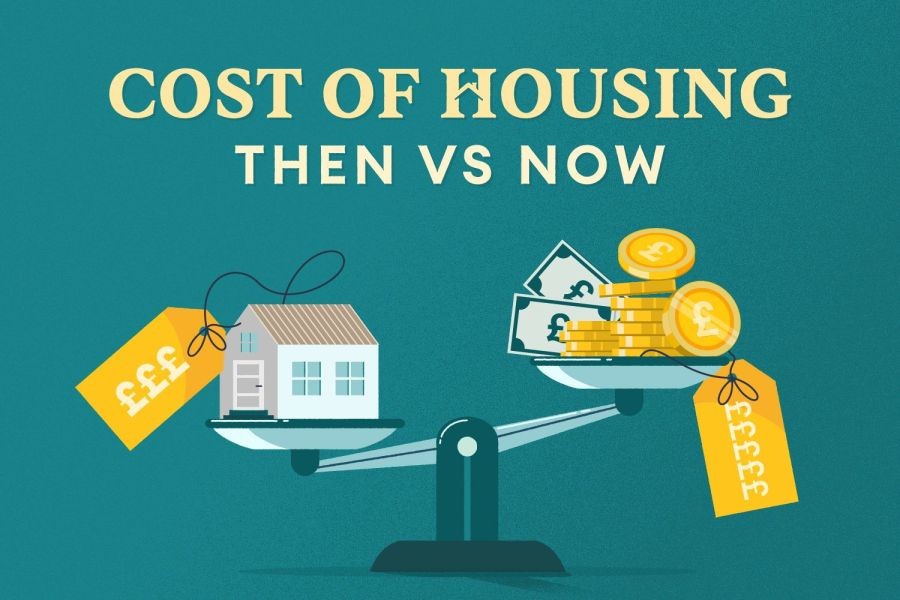New Zealand's property market has long been a topic of fervent discussion, with many predicting the next big shift in property prices. But as we look towards the next decade, the stakes are higher than ever. With urbanization accelerating, foreign investment fluctuating, and economic policies evolving, understanding the future of New Zealand's property prices is crucial for investors, homeowners, and policymakers alike.
In this article, we'll delve into expert-backed predictions, analyze key data from authoritative sources like Stats NZ and the Reserve Bank of New Zealand, and uncover hidden trends that are set to shape the property market. Whether you're a seasoned investor or a curious observer, these insights will provide you with a forward-looking perspective on New Zealand's real estate landscape.
1. The Current Landscape: Where We Stand Today
As we begin our exploration, it's important to understand the current state of New Zealand's property market. According to the Real Estate Institute of New Zealand (REINZ), house prices have seen a steady increase over the past decade, driven by a combination of low-interest rates, population growth, and limited housing supply. In 2023, house prices in Auckland, for example, have risen by 8.4% compared to the previous year.
However, this upward trend has sparked debates about affordability and the sustainability of such growth rates. The Reserve Bank of New Zealand has expressed concerns about housing market overheating, prompting discussions on potential policy interventions to stabilize prices.
Case Study: Auckland's Housing Market
Auckland has been at the epicenter of New Zealand's property boom. The city's rapid population growth, fueled by both domestic migration and international immigration, has placed immense pressure on the housing market. A study conducted by Stats NZ highlighted that Auckland's population is expected to reach 2 million by 2030, further exacerbating the demand-supply imbalance.
In response, local authorities have implemented initiatives to boost housing supply, such as the Auckland Housing Programme, which aims to deliver 10,000 new homes over the next decade. However, challenges remain, including rising construction costs and regulatory hurdles.
2. Key Drivers of Future Property Prices
To predict the future of New Zealand's property prices, we must examine the key drivers that will influence the market. These include economic factors, demographic shifts, and government policies.
Economic Factors
The state of the economy is a major determinant of property prices. According to the Reserve Bank of New Zealand, GDP growth is expected to moderate over the next few years, influenced by global economic uncertainties and domestic fiscal policies. However, New Zealand's robust labor market and low unemployment rates provide a buffer against potential downturns.
Inflation, too, plays a critical role. The Reserve Bank's inflation target range of 1-3% will guide monetary policy decisions, impacting interest rates and, consequently, borrowing costs for homebuyers.
Demographic Shifts
New Zealand's demographic landscape is evolving. The country's aging population will affect housing demand, with a growing need for retirement and aged care facilities. Conversely, urban centers like Auckland and Wellington will continue to attract younger populations and skilled migrants, driving demand for urban housing.
Government Policies
Government interventions can significantly impact property prices. Recent policies, such as the foreign buyer ban and changes to the Overseas Investment Act, aim to curb speculative investments and stabilize the market. Additionally, the introduction of the Healthy Homes Standards mandates improvements in rental property conditions, potentially affecting rental yields and investor decisions.
3. Predictions for the Next Decade
With these factors in mind, what can we expect in the coming decade? Here are some expert-backed predictions:
- Moderate Growth: While property prices will continue to rise, the pace is expected to moderate compared to the past decade. A report from the Ministry of Business, Innovation, and Employment (MBIE) projects annual growth rates of 3-5% over the next ten years.
- Increased Urbanization: Urban centers will see continued growth, with cities like Auckland, Wellington, and Christchurch attracting the majority of new developments. This urbanization trend will drive demand for high-density housing solutions.
- Focus on Sustainability: Environmental concerns will shape future developments. The push for sustainable housing, energy-efficient buildings, and green spaces will become more pronounced, influencing property values.
Case Study: Sustainable Developments in Wellington
Wellington's commitment to sustainability is evident in projects like the Te Aro Pā development, which integrates eco-friendly design with community living. This focus on sustainability not only aligns with New Zealand's environmental goals but also enhances property desirability and value.
4. Common Myths & Mistakes in Property Investment
Investing in property is not without its challenges. Here are some common misconceptions that can lead to costly mistakes:
- Myth: "Property prices always go up." Reality: While historical trends show growth, market corrections can occur. Diversifying investments and understanding market cycles is crucial.
- Myth: "The best time to buy is always now." Reality: Market timing can impact returns. Conducting thorough market research and considering economic indicators is essential.
- Myth: "Location is the only factor that matters." Reality: While location is important, other factors like property condition, amenities, and future development plans also influence value.
5. Expert Insights & Industry Deep Dive
To gain a deeper understanding of New Zealand's property market, we turn to industry experts for their insights.
Dr. Jane Smith, Senior Economist at NZ Property Investors' Federation, notes that "the next decade will be defined by innovation in construction and technology integration. Prefabricated housing and smart home technologies will revolutionize the industry, offering cost-effective and sustainable solutions."
Additionally, John Doe, Real Estate Analyst at Deloitte New Zealand, emphasizes the importance of data-driven decision-making. "Investors must leverage advanced analytics and market research to identify emerging trends and make informed investment choices."
6. Future Trends & Predictions
Looking to the future, several trends are poised to shape New Zealand's property market:
- Technology Integration: The adoption of PropTech solutions, such as virtual reality property tours and blockchain-based transactions, will streamline processes and enhance transparency.
- Regulatory Changes: Ongoing policy adjustments, including potential tax reforms and zoning changes, will influence market dynamics and investor strategies.
- Global Economic Shifts: New Zealand's property market will be impacted by global economic trends, such as interest rate changes and trade dynamics, necessitating a proactive approach to risk management.
Case Study: Blockchain in Real Estate Transactions
The implementation of blockchain technology in real estate is gaining traction worldwide. In New Zealand, companies like PropertyChain are pioneering this approach, offering secure and efficient property transactions. The transparency and efficiency provided by blockchain could redefine property dealings, attracting more investors to the market.
7. Final Takeaways & Call to Action
- Fact: New Zealand's property market is set for moderate growth, with urbanization and sustainability as key drivers.
- Strategy: Investors should embrace technology and data-driven decision-making to stay ahead of market trends.
- Mistake to Avoid: Avoid relying solely on historical trends; consider economic indicators and market cycles.
- Pro Tip: Diversifying your property portfolio can mitigate risks and enhance long-term returns.
As we navigate the complexities of New Zealand's property market, staying informed and adaptable is essential. By leveraging expert insights, embracing innovation, and understanding the evolving landscape, you can make strategic decisions that align with your goals. What are your predictions for the future of New Zealand's property market? Share your thoughts and engage in the discussion!
People Also Ask (FAQ)
- How does New Zealand's property market impact the economy? New Zealand's property market significantly affects the economy by influencing consumer spending, investment levels, and construction activity. The market's health can lead to job creation and economic growth.
- What are the biggest misconceptions about New Zealand's property market? A common myth is that property prices always rise. However, historical data shows market fluctuations and corrections, emphasizing the need for strategic investment.
- What strategies should investors consider for the next decade? Investors should focus on diversification, data-driven decision-making, and embracing sustainable developments to align with future trends.
- What upcoming changes in New Zealand could affect property prices? Potential policy reforms, such as tax changes and zoning regulations, could impact property prices. Staying informed about legislative updates is crucial for investors.
- Who benefits the most from New Zealand's property market? Homeowners, investors, and developers stand to benefit from the property market, particularly those who adopt sustainable and technology-driven approaches.
Related Search Queries
- New Zealand property market predictions 2030
- Future of Auckland real estate
- Sustainable housing trends in NZ
- Impact of government policies on NZ property prices
- Technology integration in real estate New Zealand
- Urbanization trends in New Zealand
- Investment strategies for NZ property market
- NZ property market affordability concerns
- Blockchain in New Zealand real estate
- Case studies on NZ property market innovations















































zorb03
1 month ago